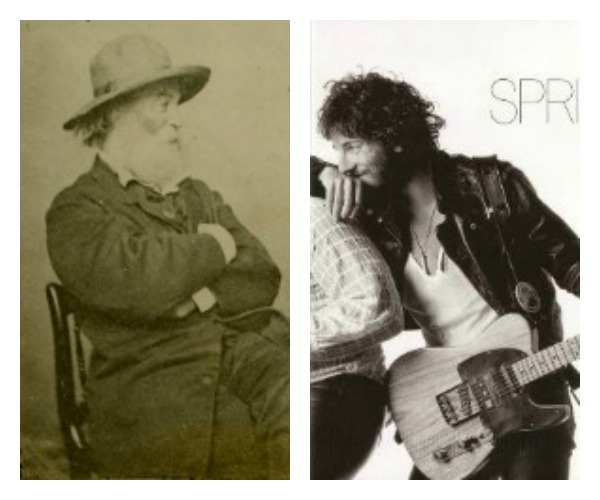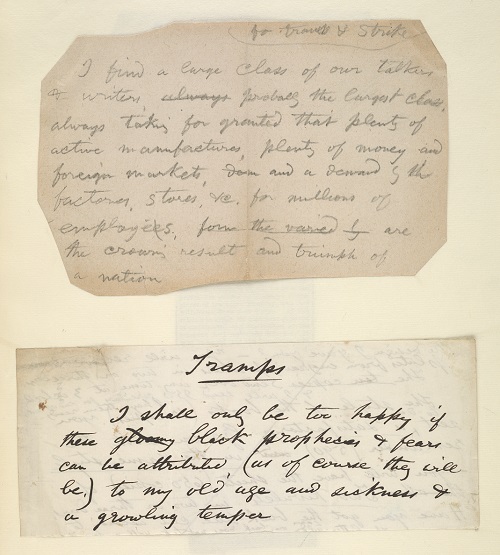You may have heard the news: a working draft of one of the iconic songs in American music, Bruce Springsteen’s “Born to Run,” will be displayed in Perkins Library on May 8-11, and then here in the Rubenstein Library from May 12-June 27. While at the Rubenstein, Springsteen’s draft, owned by Floyd Bradley, will be in the very good company of one of the largest collections of manuscripts by another favorite son of New Jersey, Walt Whitman, in the Trent Collection of Whitmaniana.

Both Whitman and Springsteen felt and expressed a deep connection with working-class Americans. After a transient childhood, Whitman worked as a journeyman printer before becoming the “Good Gray Poet”; Springsteen’s mother famously took out a loan to buy him a guitar when he turned sixteen, and years of honing his musical craft at small venues for low pay preceded the breakthrough of “The Boss.”
The working draft of “Born to Run” includes many passages that were changed or excised from the final lyrics, but the chorus “tramps like us, baby we were born to run” is already in place.

“Tramps,” or homeless itinerants looking for steady work and a place to live, became a particular concern in the United States (and for Whitman) during and after the “long depression” of the 1870s. Whitman wrote about this phenomenon in many different contexts, perhaps most memorably in a fragment entitled “The Tramp and Strike Questions.” In a sentence that gets to the core of an element of “Born to Run” and other Springsteen songs, Whitman writes there: “Curious as it may seem, it is in what are call’d the poorest, lowest characters you will sometimes, nay generally, find glints of the most sublime virtues, eligibilities, heroisms.” A volume in the Trent Collection, given by Whitman the title “Excerpts &c Strike & Tramp Question,” contains manuscripts and newspaper stories annotated by Whitman in preparation for a lecture on the topic, which was never delivered.

We’re excited to host the “Born to Run” draft, and please contact us if you’d like to take the chance to see this treasure of American culture alongside items in the Trent Collection of Whitmaniana.
Post contributed by Will Hansen, Assistant Curator of Collections.


